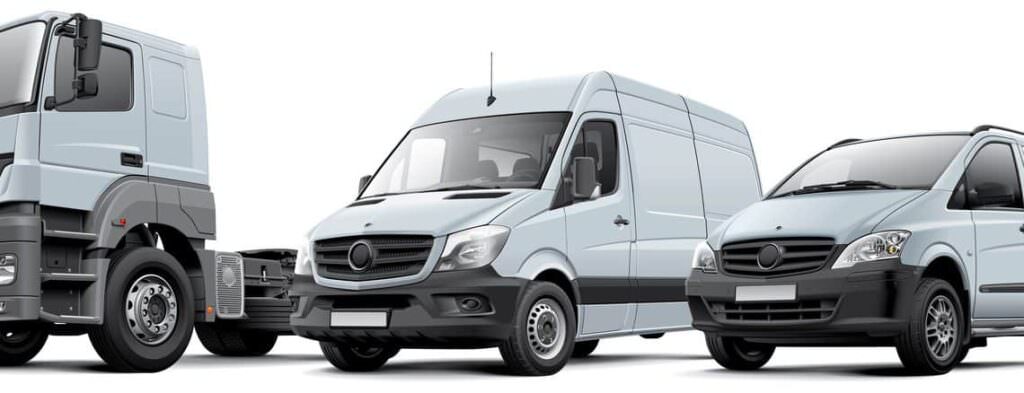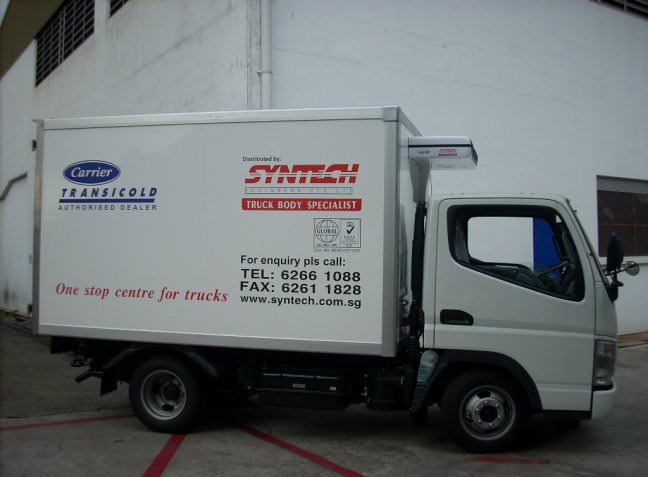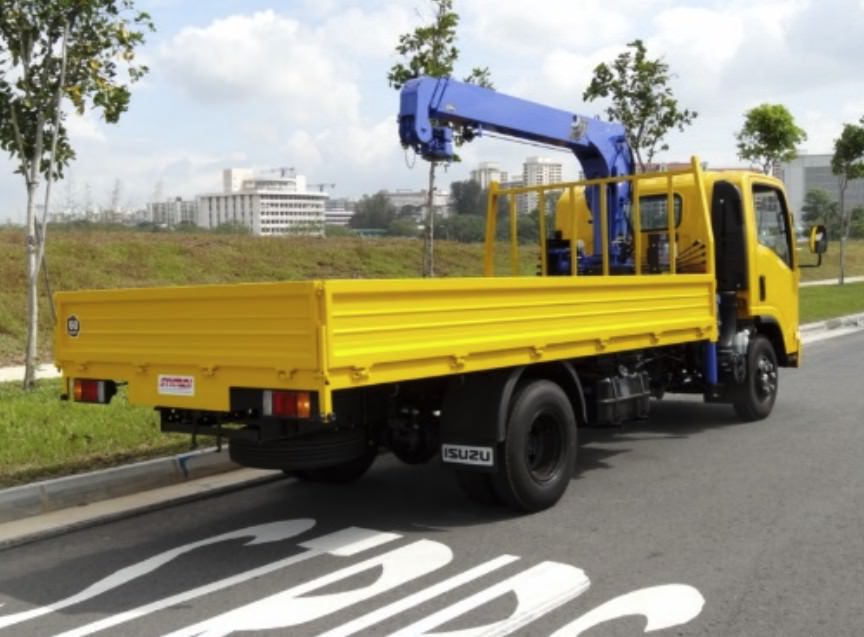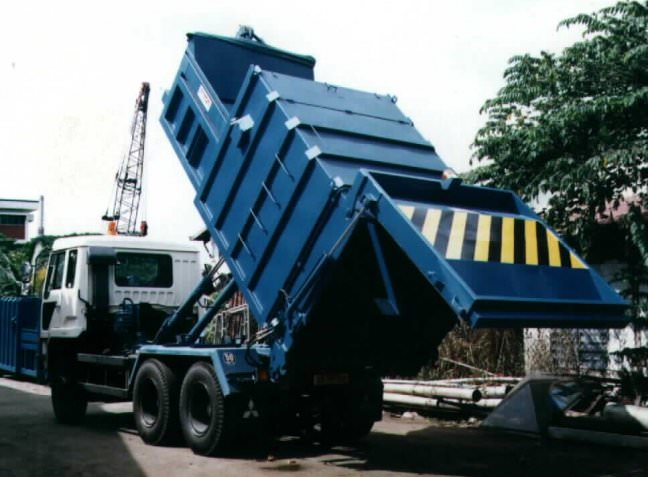
If you own a business in Singapore, whether you transport light goods or heavy goods, it is important to have the correct vehicle to suit your needs. You would also need to get a valid COE for the commercial vehicle and a license to operate the vehicle.
If you’re wondering how to buy a commercial vehicle in Singapore, there are several factors to consider, which we’ll discuss in this article.
How to Own a Commercial Vehicle in Singapore
Before you set out to purchase a commercial vehicle, do your homework to help avoid common pitfalls. Only registered companies are allowed to purchase commercial vehicles in Singapore. Unless you hold a hawker license from the NEA (National Environment Agency), an individual won’t be able to purchase a commercial vehicle.
Such guidelines are in place so as to prevent commercial vehicles from being used as personal transport vehicles. All commercial vehicles need a COE (Certificate of Entitlement) that allows you ownership of the particular vehicle identified on the certificate. Commercial vehicles can be registered under category C or category E.
What Are The Different Type Of Commercial Vehicles In Singapore?
Each commercial vehicle serves a specific purpose. They are categorised according to their MLW (Maximum Laden Weigh), except for the GPV (Goods-cum-Passenger Vehicles).
Below is a detailed description of each of the main types of good vehicles, and what they are used for. It is the responsibility of all vehicle owners to ensure that their vehicles meet the requirements set out below.
LGV – Light Goods Vehicle

A Light Goods vehicle is a lightweight vehicle with a total gross weight of 3500kg or less. Examples of LGVs include vans, three-wheelers, and pickup trucks. It is typically used for the transportation of commercial goods. Mini busses with a maximum seating capacity of up to 15 passengers are also referred to as LGVs. Fortunately, there are no specific requirements that an LGV must satisfy.
HGV – Heavy Goods Vehicles

Heavy goods vehicles include trucks and lorries with an MLW ranging between 3501kg to 16,000kg. It’s typically used to deliver goods.
There are some safety requirements that HGVs must meet:
- Blind spot safety requirements: All HGVs must be fitted with two rear-view mirrors. If the MLW is above 12,000kg, it must also have mirrors or cameras to cover the vehicle’s blind spots. These requirements are in place to enhance the safety of your vehicle and to make it easier for the driver to detect pedestrians.
- Vehicle parking certificate: An HGV with an MLW over 5,000kg requires a VPC to enable you to park your vehicle in designated parking areas. When your vehicle is not used at night, it must be parked in designated parking spaces between midnight and 6 am.
- Vehicle height and size regulations: Heavy vehicles, especially when used to transport weighty cargo, tend to slow down traffic. They have speed limits they need to adhere to; however, a police escort is required to ensure the safety of other road users. The large size and height of these vehicles might affect road structures.
VHGV – Very Heavy Goods Vehicles

Very heavy goods vehicles are used for transport, construction, and other purposes. Large container trucks, garbage trucks, and tow trucks are all examples of VHGVs. Their MLW is above 16,000kg. The same safety requirements that apply to the HGVs, are applicable to the VHGVs.
GPV – Goods-cum-Passenger Vehicles
GPVs can be used to transport both goods and passengers. It can be classified as either a Light Goods Vehicle or a Heavy Goods Vehicle. The way it is classified will depend on its Maximum Laden Weight and examples of GPVs include busses, lorries, and vans.
Do take note that GPVs must adhere to safety requirements. For instance, lorries are only to be used to transport employees from their workplace to their place of residence. Whilst in transit, all goods onboard need to be safely secured to ensure that it doesn’t pose a threat to the safety of the passengers in transit.
5 Factors to Consider Before Buying a Commercial Vehicle
When buying a commercial vehicle, there are also factors that you need to consider to make the best possible decision in terms of functionality and value for money.
Some of the factors to consider include:
- Value
- Design
- Drivetrain
- Truck size classification
- Cab configuration
To ensure your commercial vehicle will be appropriate for the long haul, make sure it meets all your requirements, so you don’t find yourself looking for a new one in a few months’ time.
What is a COE and Do I Need One?
A COE is a Certificate of Entitlement that enables you to own a vehicle in Singapore. Since Singapore has one of the densest vehicle population growths in the world, a landmark scheme called the Vehicle Quota System was implemented to regulate vehicle population. To regulate this, the COE was implemented. A COE is valid for 10 years and will need to be renewed thereafter.
Choosing The Right Type of Commercial Vehicle for Your Business
As mentioned above, you need to carefully consider the type of business you run, in order to correctly choose the right type of commercial vehicle to suit your needs. The size of your business and your transportation requirements will greatly influence the type of goods vehicle you choose. Familiarise yourself with the regulations to make sure you and your vehicle comply.
The Importance of Cargo Space
Cargo space is a factor that you need to consider. Your day-to-day requirements will determine how much space you’ll need. Only opt for larger cargo spaces if you’ll utilise them. Each model differs, so research various options by reading reviews and watching online videos to ensure you choose one that aligns with your practical needs.
Commercial Vehicle Insurance
It is required to have vehicle insurance on all commercial vehicles, in the event of any accidents. The best route is to obtain several quotations to compare before making your final choice on an insurance company to partner with. Familiarise yourself with what each company offers and make sure what is covered and what isn’t, so you know what you’re paying for.
Financing a Commercial Vehicle in Singapore
Another difference between commercial and personal vehicles is the percentage of financing you can obtain. Processes of buying personal vehicles have a lower success rate of getting finance, which may force you to take a loan from your bank instead. However, commercial vehicles can easily get up to 90% financing.
Having financing on a commercial vehicle will enable you to afford a more high-end vehicle, which can significantly generate more revenue in the long run.
Procure Your Commercial Vehicle With Syntech
If you own a business in Singapore, owning a commercial vehicle can be an important part of your growth. Keeping your vehicle well maintained and your COE up to date, are vital to ensure continuous use of your commercial vehicle.
Do your research carefully to make sure you choose the right vehicle and always stay on top of the country’s rules and regulations regarding traffic rules and other safety requirements.
And if you’re looking to procure your commercial vehicles, Syntech is your ideal brand partner.
Headquartered in Singapore, we design, customise, and fit your trucks to align with your exact needs.
If you have any concerns in this matter, Syntech is an ideal brand to partner with. We are headquartered in Singapore and have many happy clients across Southeast Asia.
ENQUIRE WITH SYNTECH ON PROCURING YOUR OWN COMMERCIAL TRUCK
FAQs
1) What Is Considered a Commercial Vehicle in Singapore?
There are four main types of vehicles that are considered commercial vehicles in Singapore. They are as follows:
- Goods-Cum-Passenger Vehicles (GPVs)
- Light Goods Vehicles (LGVs)
- Heavy Goods Vehicles (HGVs)
- Very Heavy Goods Vehicles (VHGVs)
The above-mentioned vehicle types are listed as commercial vehicles according to One Motoring. One Motoring is a website hosted by the Land Transport Authority (LTA).
2) Can Commercial Vehicles be Used for Private Use?
Commercial Vehicles are only to be used for business purposes such as transporting goods. Using commercial vehicles for personal use is considered an offense according to the LTA (Land Transport Authority).
Such an offense is susceptible to a fine of $1000 or three months in jail for the first conviction. The second conviction is liable for a fine of $2000 or six months imprisonment. You should always use passenger cars when travelling for personal matters but be careful to not exceed the seating capacity.
3) How Long Can Commercial Vehicles Be Used in Singapore?
Unfortunately, you have a maximum time of 20 years to use a commercial vehicle. You may be willing to do a COE renewal, but it will be illegal to go on using the vehicle.
